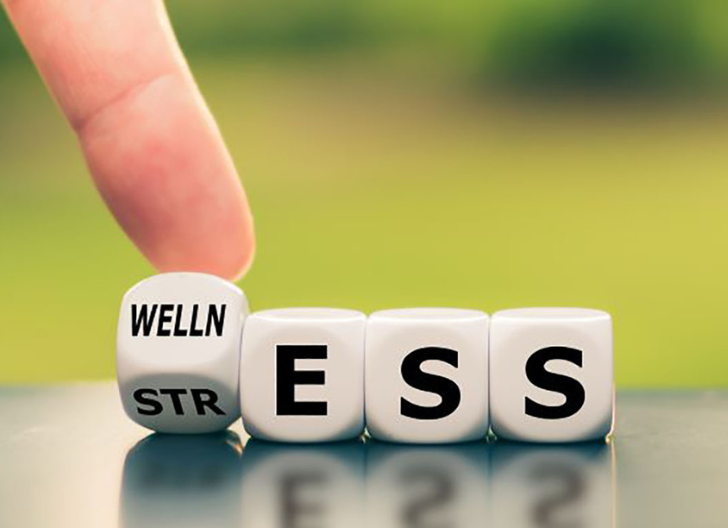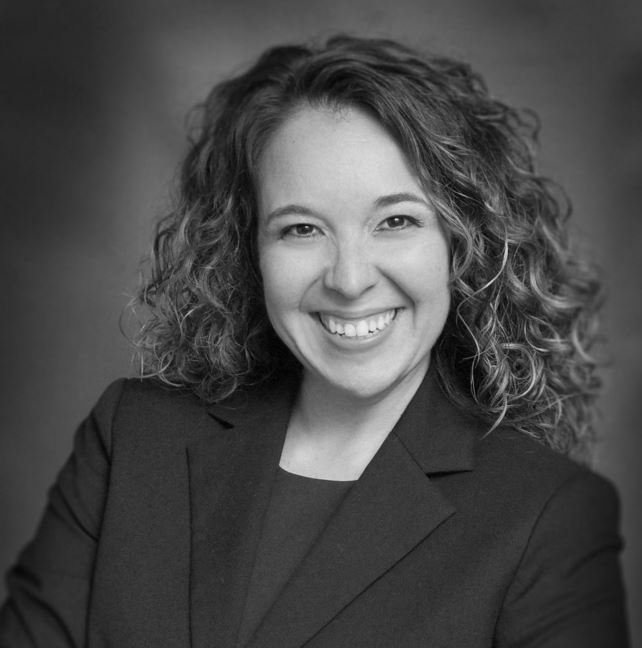Reducing Stress and Boosting Attorney Well-Being: Q&A with Danielle Hall, Executive Director, KALAP
The NBI Team

In this faculty profile, we talk with Danielle Hall, Executive Director for the Kansas Lawyers Assistance Program (KALAP), about effective techniques for managing stress and improving well-being within the legal profession.
Thanks for speaking with us, Danielle! KALAP recently wrote about coping with election stress, which is an important reminder that COVID-19 is just one of the many major stressors new law school grads and attorneys are facing today. What do you recommend for attorneys struggling with uncertainty or anxiety?
Building resilience is a key step to dealing with uncertainty and anxiety about situations. It’s also important to recognize what you can and can’t control under the circumstances. When you begin focusing your time and energy only on things you can control—and stop worrying about what you can’t— it helps you feel better about a situation, because you spend your efforts only on what you can change or impact.
A lot of it, however, comes down to shifting the way we think about situations when our minds go to the worst of the worst thoughts. It’s often those thoughts that begin to make us feel anxious. So, ask yourself 1) is this thought true, and 2) why am I choosing this thought? We give power to our thoughts, both positive and negative, those thoughts lead to emotions and then actions. Sometimes we just need to cross-examine our thinking to shift our outlook.
What are some daily steps attorneys can take to improve well-being during these challenging times?
Focusing on diet and exercise are the common recommendations most of us are familiar with but sleep also makes a big impact. Research suggests a bi-directional relationship between mental health and sleep, meaning mental health conditions can make it harder to sleep and at the same time poor sleep can be a contributing factor to a mental health condition. Now is a good time to start making sleep a priority.
Of course, there are other things you can do like saying positive affirmations, starting a gratitude journal, meditating, or performing breathing exercises. Just remember, self-care practices are not a one-size-fits-all kind of thing. It may take trial and error to determine what works best for you, but you won’t know unless you start trying. If you want to start with something simple, make it a priority to take breaks throughout your day and take time away from those screens. Go outside and get some socially-distanced fresh air.
Any tips for lawyers who are grappling with the challenges of practicing from home?
Boundaries are an important foundation to successfully achieving increased well-being and balance in any type of work environment, and they are needed now more than ever. Lawyers tend to struggle with setting healthy boundaries in their everyday practice, let alone during a pandemic where most of us are working from home. I even find myself struggling with the blurred line separating work from home and home from work, so my first suggestion is setting some boundaries with your time and physical space.
Don’t fall into the trap of working non-stop just because the laptop is there. Have a firm time you will stop working and checking email. Also, have some physical distance between your workspace and leisure space. For example, if you’re working at your kitchen table, go eat lunch somewhere else in the house. At the end of the day, put everything away or at least close the laptop to give your brain a physical indication that you are shutting down your work for the day. If you’re suffering from Zoom fatigue, you can always use the phone. It still works.
What steps can law firm leaders take to promote well-being within law firms?
I am a firm believer that to make changes in the culture of our profession surrounding the stigma associated with mental health, substance abuse issues, and well-being, it has to come from the top down, so this is an excellent question.
Firm leaders should be leading by example and vocalizing that 1) it is OK to not be OK, and 2) it is OK to care for and about your own well-being.
Sometimes what we don’t say can also affect the firm culture surrounding well-being. For instance, many young lawyers talk about unspoken expectations to work late and on the weekends and how they don’t want to be the first to question if this is truly a policy. As a result, firm leaders should consider implementing well-being policies and programming for their firm and be vocal about it. For firms looking to do this, there is a great toolkit for legal employers available from the American Bar Association.
You recently spoke with a group of Kansas bar exam takers about the stress involved with taking a bar exam during a pandemic. Could you share some highlights and any suggestions for new attorneys struggling with the added pressure of taking the bar or navigating a job search?
Sure, we mostly discussed the stress and anxiety surrounding the unknown leading up to the exam, while awaiting to hear what the exam conditions would entail. We talked a lot about how you deal with that and at the same time focus on studying for the exam. Each of the exam takers shared what they were doing for their own well-being during that time. I thought it was brave of them to tell their own stories and struggles.
If you’re preparing to take a bar exam or navigating a job search right now, having a self-care plan is a good strategy to combat any added stress. I would also recommend paying attention to the physical signs of stress that manifest with our emotions, like tension in our necks or headaches. This allows you to catch it early and immediately do something to relieve it. For instance, one bar exam taker shared about taking breaks when feeling overwhelmed and taking the time to go for a walk in the middle of the day with her dogs because it brought her joy in those moments.
What are some good resources for learning more about how to effectively manage stress and improve well-being?
First, I would recommend turning to your own state’s lawyer assistance program and bar association for resources. Many of them have resources available on their websites and have produced helpful content on these subject matters. Another place you can go for resources is the Institute for Well-Being in the Law (formerly known as the National Task Force on Lawyer Well-Being). Additionally, many of the states have their own state-wide task forces who provide resources.
And if you find yourself struggling right now, I highly encourage you to contact your LAP. They are there to assist and help you get the resources you need, including mentoring, counseling, or treatment.

Danielle Hall has served as the Executive Director for the Kansas Lawyers Assistance Program since December 2019. Prior to her appointment, Danielle served as a Deputy Disciplinary Administrator for the State of Kansas and coordinator for the Attorney Diversion Program, where she worked directly with lawyers who were struggling with time management, stress, and burnout issues related to the practice of law. Danielle regularly teaches continuing legal education on many topics including lawyer well-being, addiction issues, ethics, and law practice management. She currently serves on the Executive Committee of the Kansas Lawyer Well-Being Task Force and is Chair of the Topeka Bar Association Technology Committee, Co-Chair of the Minority Women in the Profession Committee for the Kansas Women Attorneys Association, and a regular contributor to the Kansas Bar Association Law Practice Management and Technology Blog.
